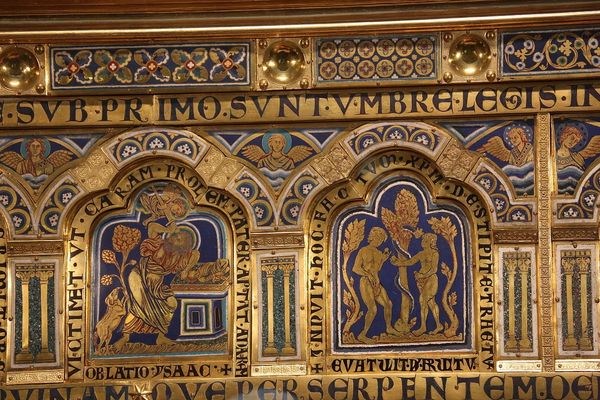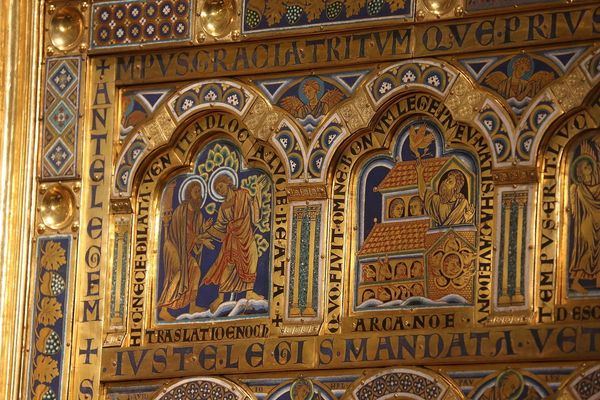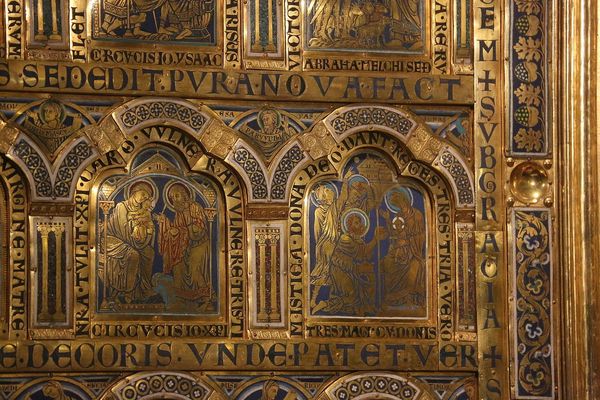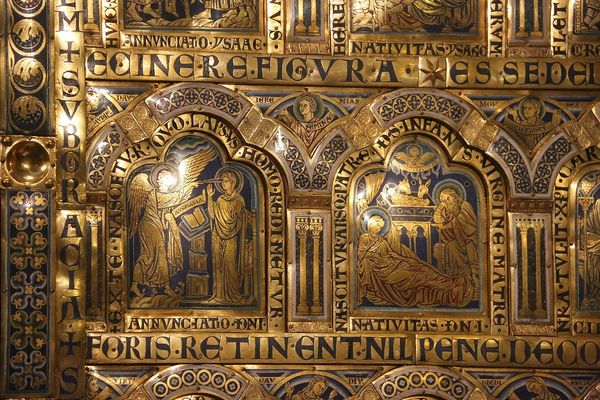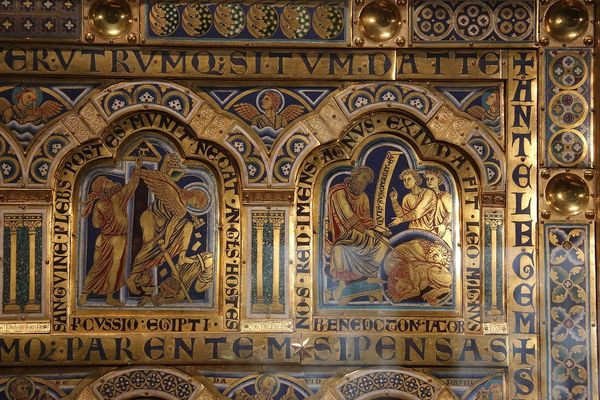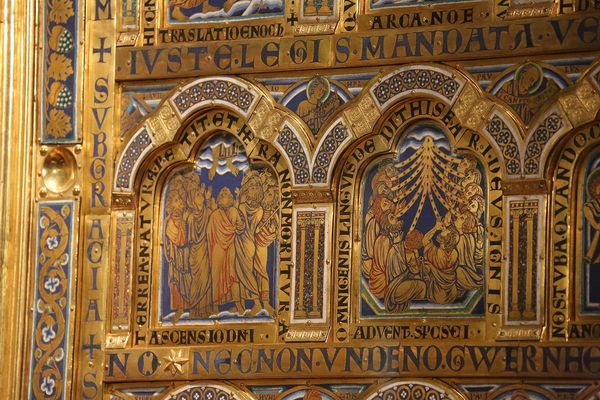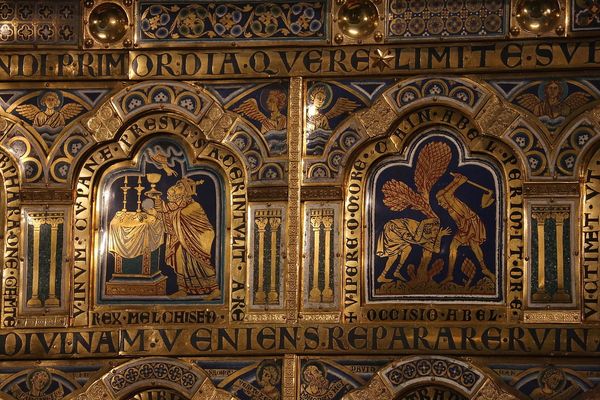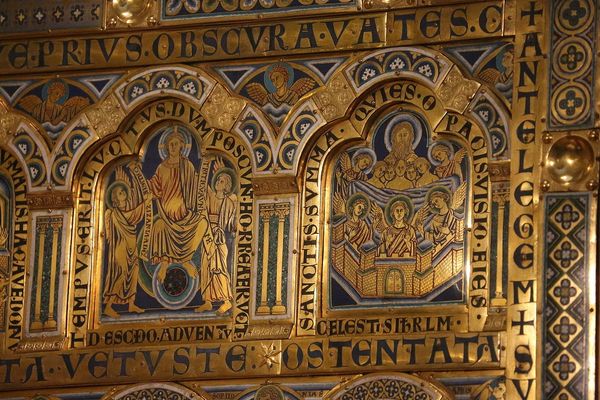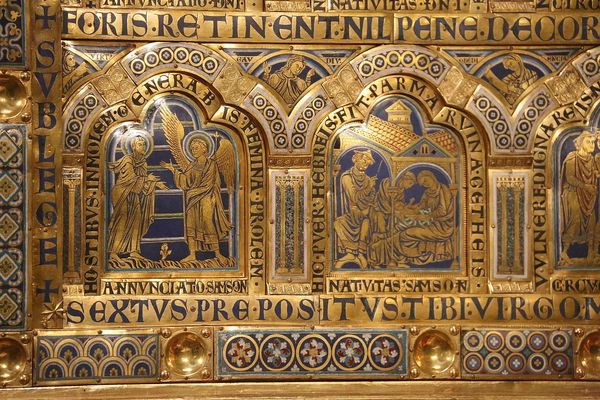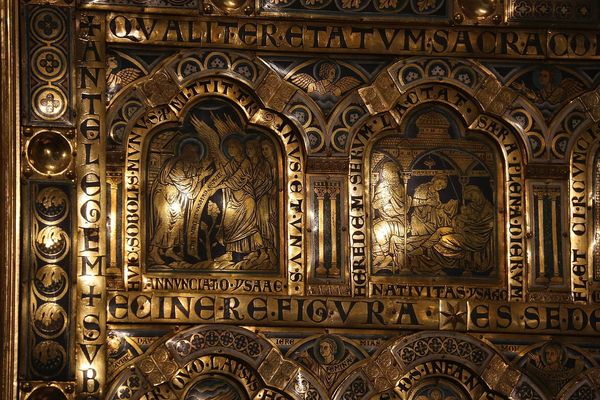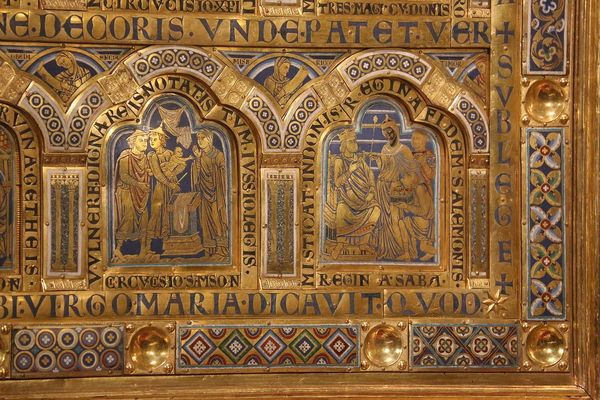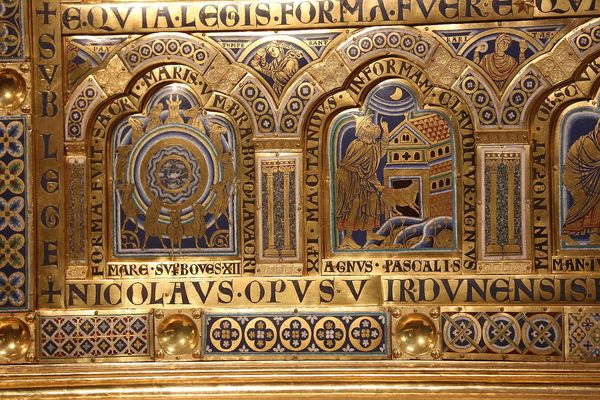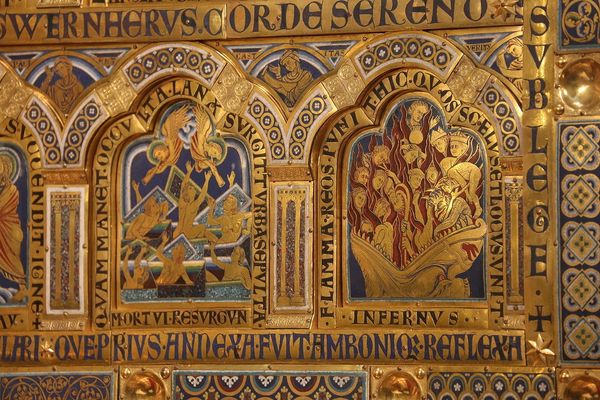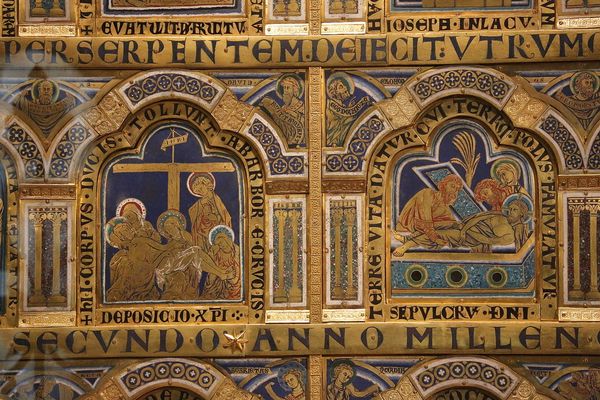
mosaic, carving, tempera, metal, gold, relief
#
mosaic
#
byzantine-art
#
medieval
#
carving
#
tempera
#
metal
#
structure
#
gold
#
gothic
#
relief
#
holy-places
#
historic architecture
#
traditional architecture
#
architectural
Copyright: Public domain
The Klosterneuburg Altar was made around 1181 in Austria by Nicholas of Verdun, and it is constructed from gilded copper and enamel. The altar's imagery, divided into three registers, presents a visual narrative of salvation history, linking Old and New Testaments. This resonates with the theological trends of the time, emphasizing continuity between the testaments and reflecting the Church's role as mediator. The work responds to its cultural context, marked by the Investiture Controversy and the rise of monastic orders, and the altar's opulent materials and intricate craftsmanship reinforce the Church's authority and wealth. But it also serves as a reminder of the Church's spiritual mission. To fully understand this work, historians delve into liturgical texts, theological treatises, and monastic records. These resources reveal the complex interplay between art, religion, and power in the medieval world, underscoring the altar’s role as a site of both religious devotion and institutional affirmation.
Comments
No comments
Be the first to comment and join the conversation on the ultimate creative platform.
